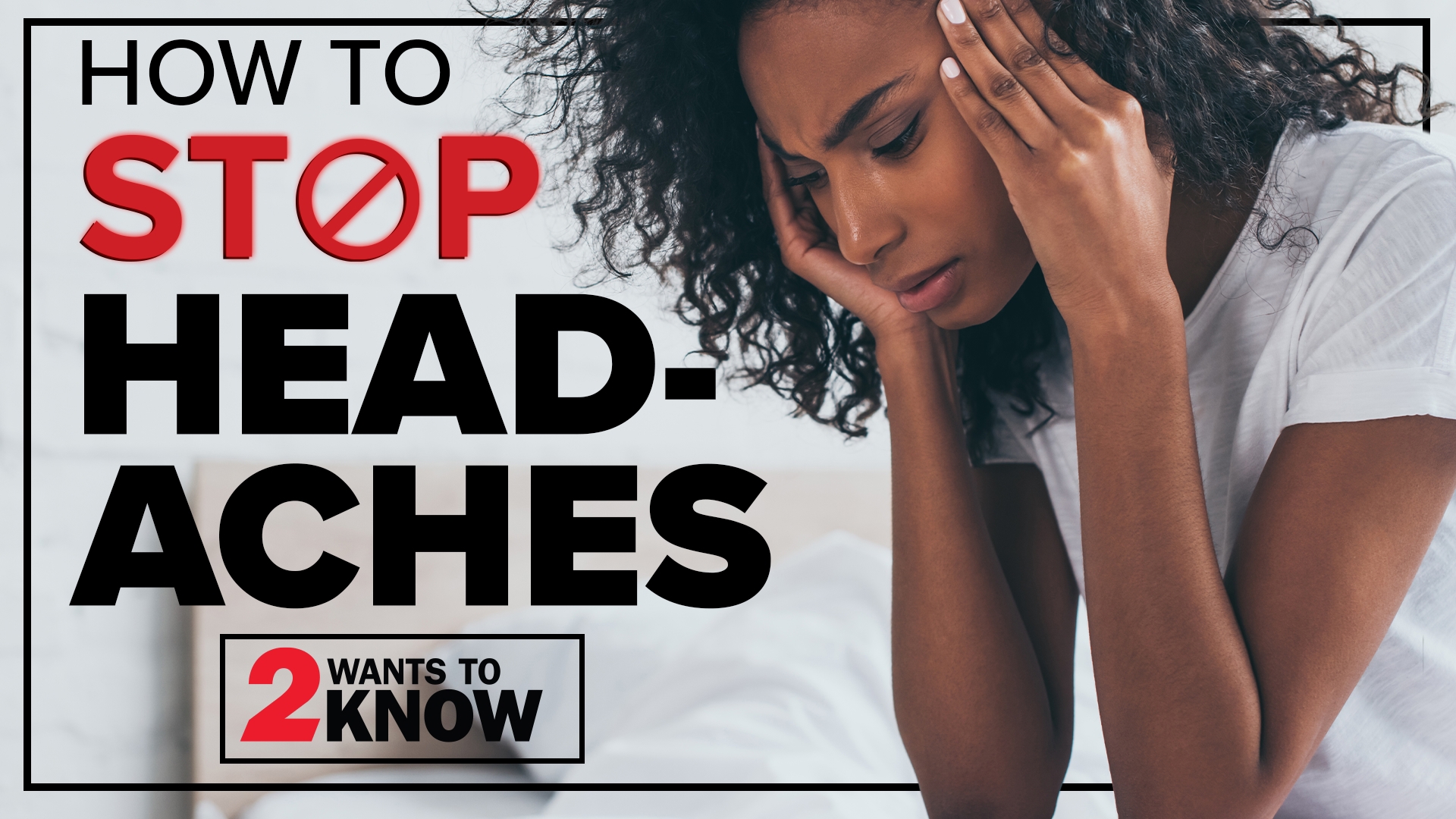GREENSBORO, N.C. — Your head hurts. Maybe you were staring at your computer or phone too long. Or you skipped breakfast, didn’t sleep well, or got stressed fighting traffic. But now that it’s here, what can you do to get rid of it?
Research shows the prevalence of tension-type headaches is about 27% of the general population, while the prevalence for migraines is about 15%.
Doctors say that in addition to doing everything you can to prevent a headache, you’ll also need a rescue plan for when one starts.
"Time is of the essence. You have to take medication right away," said Dr. Myrna Cardiel, Neurology.
So which over-the-counter meds will give you the fastest pain relief?
"In a study comparing ibuprofen with acetaminophen, people who took 400 milligrams of ibuprofen had better and faster pain relief than those who took 1,000 milligrams of acetaminophen," said Pang Chieh Ho, Consumer Reports.
With ibuprofen, you should know that long-term use at high dosages, or more than 2,400 milligrams per day, may cause an increased risk of cardiovascular events. That’s why people who have recently had a heart attack are advised to avoid it.
Some supplements and alternative treatments might also help treat your headache. Studies show that migraine sufferers have fewer attacks per month when they take some supplements.
Sometimes a headache can be a sign of something serious. Here are some conditions that should prompt you to call 911 or have someone take you to the ER:
If you are pregnant, a headache can mean your blood pressure is too high.
Also, you might suffer tension-type headaches after exercising, but if it includes pain in your chest, jaw, or neck, it could mean a heart attack and you should get medical help.
It might sound odd, but several studies suggest that consuming ginger, either the root itself or in powder form can ease migraines. An ice pack or ice face mask can also ease migraines. For a tension headache, try a hot pack or hot bath.

